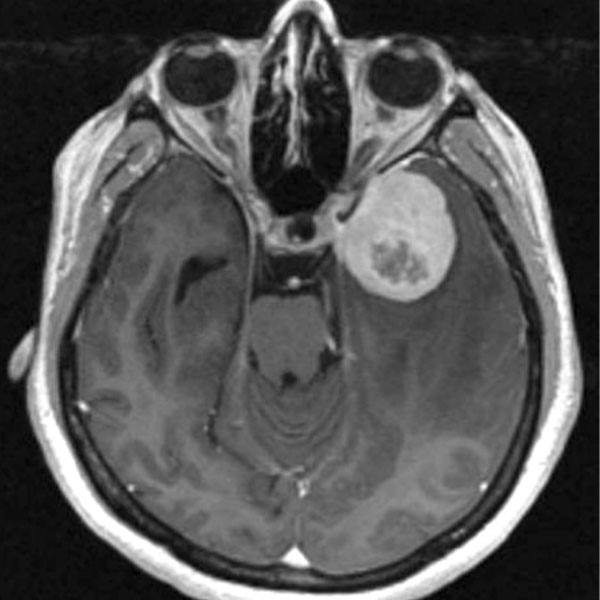-
Immune Function Marker Does Not Predict Benefit of Trastuzumab in HER-2+ Breast Cancer Patients, Study Finds
JACKSONVILLE, Fla. — A marker of immune function that predicts for better outcomes in patients treated with chemotherapy for triple negative breast cancer is also linked to improved prognosis in patients treated with chemotherapy for HER2-positive breast cancer. But that marker — the quantity of tumor-infiltrating lymphocytes (S-TILs) in a biopsy — appears irrelevant when trastuzumab is used.
And since trastuzumab, and not chemotherapy alone, is the standard of care for the HER2-positive sub-class of breast cancer, there is no need to test for these lymphocytes in HER2-positive patients in order to predict outcome, say researchers from Mayo Clinic in Florida.
These findings, presented at the 2014 San Antonio Breast Cancer Symposium, don’t mean that immune function in this class of cancer isn’t important — just that it is likely more complicated than measuring the number of these lymphocytes, says the study’s lead author, Edith A. Perez, M.D., deputy director at large, Mayo Clinic Cancer Center, and director of the Breast Cancer Translational Genomics Program at Mayo Clinic in Florida.
“Researchers are really interested in the different components of the immune system as a predictor of the natural history of breast cancer and benefit from different therapies, but it may be that when trastuzumab is used, it is the function of the immune system and not the number of lymphocytes that is important,” Dr. Perez says.
She also pointed out that S-TILs can do two things — they can promote the killing of tumors but they can also actually create substances to help cancer grow. “We don’t know what effect they have when trastuzumab is used,” she says.
The study measured S-TILs at diagnosis in about 1,000 patients with early stage HER2-positive breast cancer enrolled in the N9831 study, which tested chemotherapy alone or chemotherapy with trastuzumab. Only patients treated with chemotherapy alone showed improved recurrence-free survival when the S-TILs score was high.
The findings contradict a smaller study of HER2-positive patients that found increased levels of S-TILs were linked to increased trastuzumab benefit. That study suggested that tumors of patients with HER2-positive disease should be tested for their S-TILs score in order to determine therapy benefit.
“Ours is a much more definitive study, showing this testing is not necessary in this subset of patients with HER2-positive breast cancer,” Dr. Perez says.
“This study is part of a series we are conducting to determine which patients should use trastuzumab. We are now giving it to everyone whose tumors are HER2-positive, but not every patient benefits,” she says.
Researchers from Mayo Clinic in Rochester, Indiana University, Genomic Health and the University of California San Francisco participated in the study.
The study was partially funded by Mayo Clinic, the 26.2 with Donna Foundation and the Breast Cancer Research Foundation, and by the National Cancer Institute of the National Institutes of Health under Award Numbers U10CA180821 and U10CA180882 to the Alliance for Clinical Trials in Oncology and CA025224 to the legacy North Central Cancer Treatment Group (NCCTG). This study is registered on clinicaltrials.gov as NCT00005970.
About Mayo Clinic Cancer Center
As a leading institution funded by the National Cancer Institute, Mayo Clinic Cancer Center conducts basic, clinical and population science research, translating discoveries into improved methods for prevention, diagnosis, prognosis and therapy. For information on cancer clinical trials, call 507-538-7623.
About Mayo Clinic
Recognizing 150 years of serving humanity in 2014, Mayo Clinic is a nonprofit worldwide leader in medical care, research and education for people from all walks of life. For more information, visit 150years.mayoclinic.org, MayoClinic.org or newsnetwork.mayoclinic.org.
About the Alliance for Clinical Trials in Oncology
The Alliance for Clinical Trials in Oncology is a national clinical trials network sponsored by the National Cancer Institute that consists of a network of nearly 10,000 cancer specialists at hospitals, medical centers, and community sites across the country and Canada. The Alliance is dedicated to developing and conducting clinical trials with promising new cancer therapies, and utilizes the best science to develop optimal treatment and prevention strategies for cancer, as well as researching methods to alleviate side effects of cancer and cancer treatments. To learn more about the Alliance, visit allianceforclinicaltrialsinoncology.org.
# # # #
MEDIA CONTACT: Joe Dangor, Mayo Clinic Public Affairs (on-site during San Antonio Breast Cancer Symposium), 651-261-9089 (cell). Email: dangor.yusuf@mayo.edu.
Paul Scotti, Mayo Clinic Public Affairs, 904-953-0199. Email: scotti.paul@mayo.edu.







